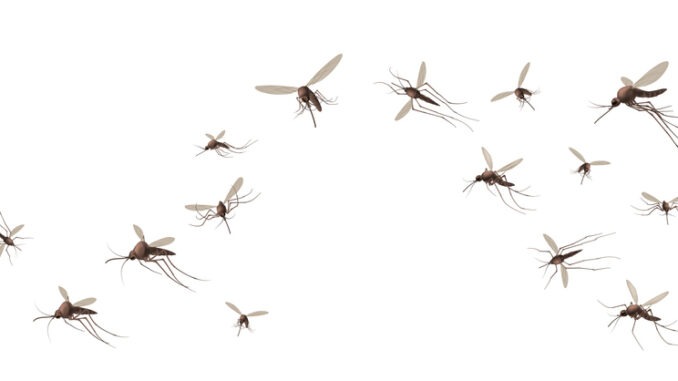
Dr Ross Perry explains why some people get bitten so badly by mosquitoes while others get away bite-free
CREDIT: This is an edited version of an article that originally appeared on the London General Practice
Around 20% of the population is more susceptible to being bitten by insects; this difference is quite large and the result of several factors.
Blood type
“Firstly, blood type can play a small part,’ says Dr Ross. “One type of mosquito is more favourable to the common O blood type, and another is more attracted to blood type AB”.
It is believed that approximately 80% of the population secrete a signal revealing which blood type they are – a factor which helps draws mosquitoes in.
Clothing
The clothes we choose to wear can also be important. “Insects tend to be more attracted to dark colours – which are easier for them to spot, whereas light colours tend to blend in.”
CO2
Mosquitoes are attracted to carbon dioxide. The more we exhale, the more desirable we are. Exercise that produces heavy breathing could, therefore, attract the insect. “When exercising we produce more carbon dioxide which is likely to alert mosquitoes to a host,” says Dr Paul Ettlinger, a GP at The London General Practice.
Sweat and bacteria
Mosquitoes are also more attracted to the smell of bacteria and sweat according to Dr Ettlinger. “Mosquitoes are attracted to compounds in sweat, including lactic acid and certain odours. When we exercise we increase the build-up of lactic acid and odour, so this can attract the mosquitoes”.
Higher body temperature
A higher body temperature, and moisture, may also play a part. Dr Ross has a warning for pregnant women, in particular. “It’s worth pointing out that pregnant women also appear to be more attractive to mosquitoes – most likely due to having a slightly higher body temperature”.
Stress and cortisol
Founder of Mind Body Medical, Dr Sam Watts, says there’s also evidence that mosquitoes can also detect the stress hormone cortisol. “Those with higher cortisol levels, and more acute cortisol spikes, are more likely to be sought out by mosquitoes than others.
“This may explain why, as soon as we start being bitten, we suddenly attract a host of new mosquitoes; they are attracted by the increased cortisol production that commonly follows the stress of being bitten repeatedly.”


Be the first to comment